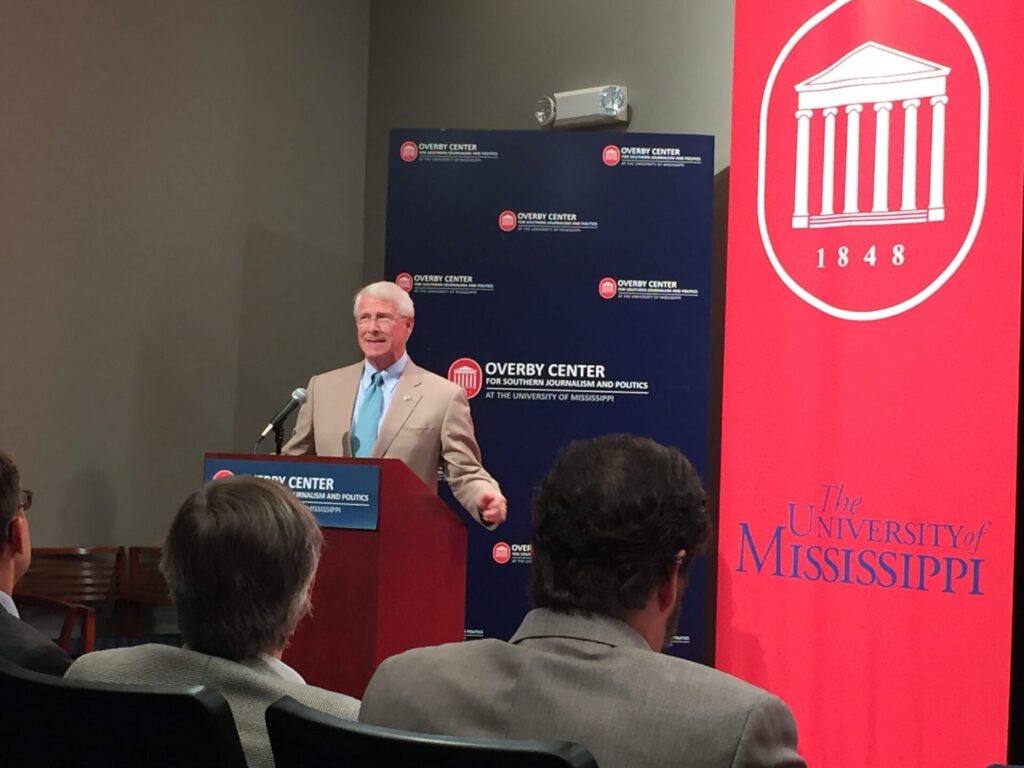
At the invitation of Chancellor Jeffrey Vitter, leaders from Raytheon, GlobalStar, Microsoft and Comcast gathered for a high-level Technology Summit at the University of Mississippi.
Mississippi Senator Roger Wicker (R) was the keynote speaker.
He said Chancellor Vitter is a computer scientist in his own right, “so it not surprising that he would lead this tech summit. This new effort at the University of Mississippi.”
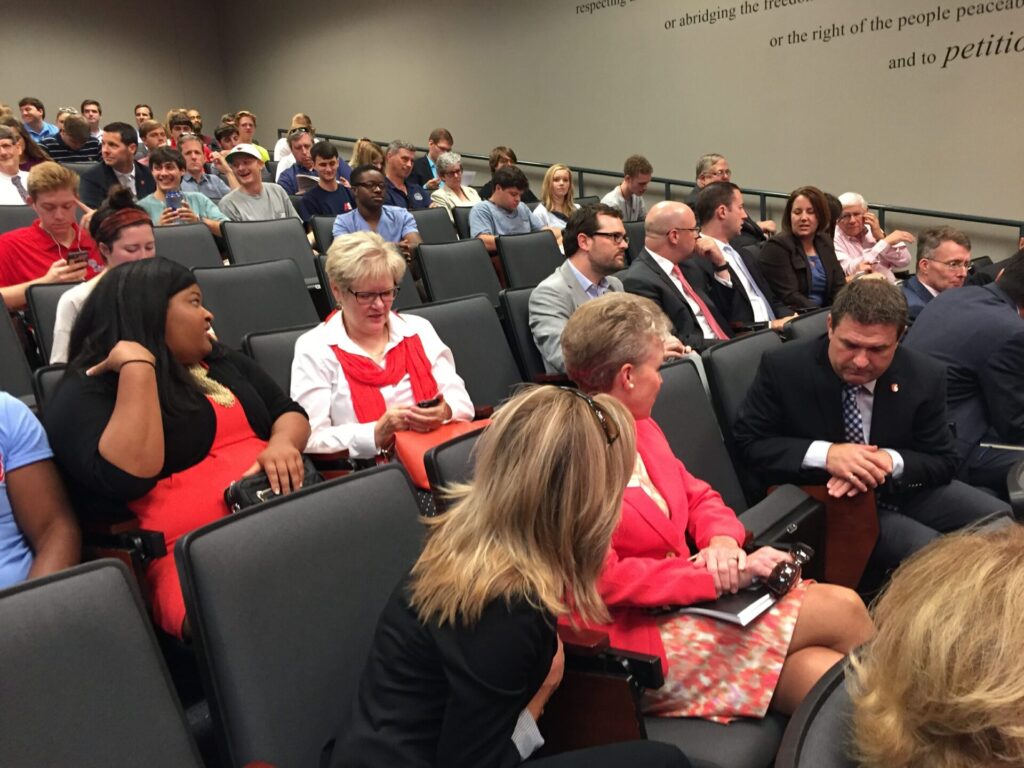
Sen. Wicker serves in Congress as the Chairman of the Subcommittee on Communications, Technology, Innovation and the Internet. The committee seeks to craft legislation that addresses both challenges and opportunities in the industry.
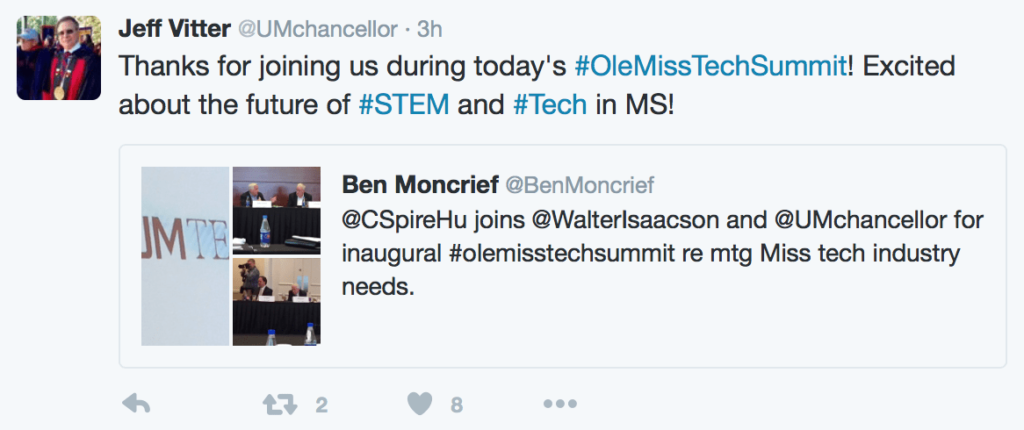
Wicker contends there is a lot to be learned from science fiction television programs, like one of his favorites, “Person of Interest.”
“For instance,” Wicker said. “Technology can protect us. Technology can threaten our security. Technology can be liberating. Technology can curb our freedoms and privacy. Technology can make us wealthy… technology can make us better educated.”
Wicker maintains, “the machine can either be your friend or your worst nightmare.”
He went on to say he is excited to discuss how the University of Mississippi can make technology be “its friend.”
Wicker contends the university, as well as the state, are not only a vital part of technology and Internet progress but in many respects, Mississippi is leading the way.
Studies show 74 percent of households in urban areas of the U.S. had residential broadband connections.
Wicker says it’s the state’s unique challenges that motivate technology advancement. Given 54 percent of the state’s residents live in rural areas, connectivity is among the top challenges. Half of those lack what the FCC classifies as broadband services.
“That’s why we’ve had to be really good,” Wicker said.
Wicker also addressed how technology can have a significant impact on the way Mississippians live and work. Wicker noted precision agriculture and telehealth technologies as examples of Mississippi excelling in technology advancements.
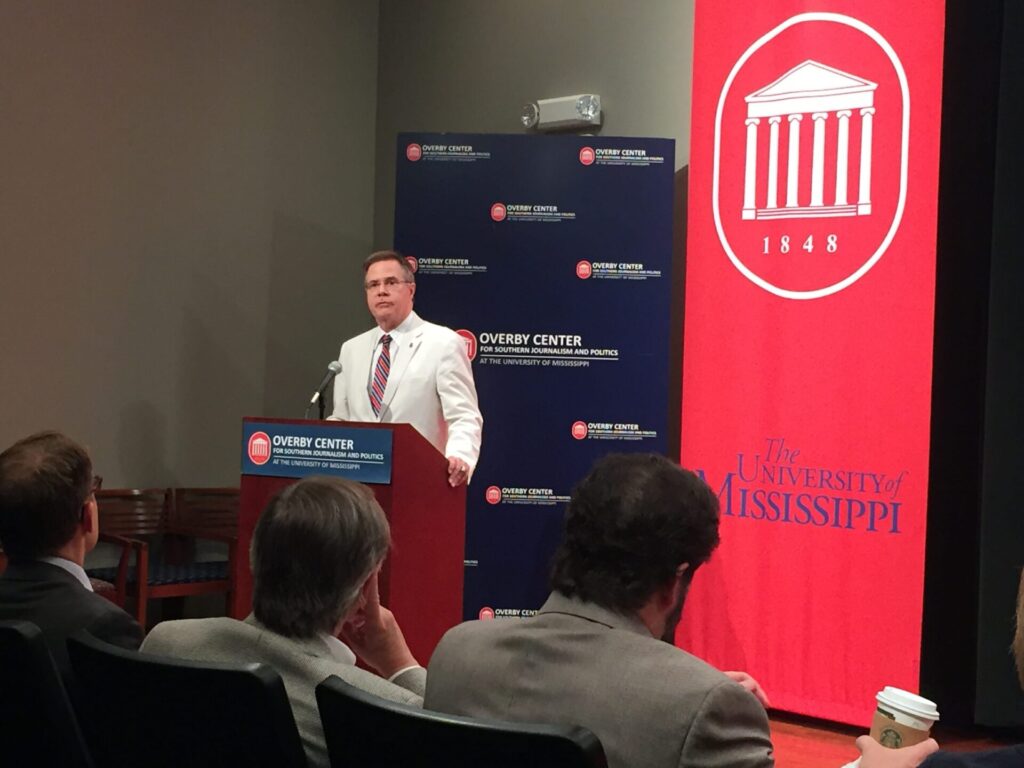
Using high-speed broadband, “Precision Agriculture” integrates crop management systems that attempt to match the kind and amount of inputs with the actual crop needs for small areas within a farm field.
Wicker referenced one Mississippi farmer who uses Precision Agriculture technology to farm roughly 22,000 acres.
“Telehealth” uses digital solutions to enhance the quality and safety of healthcare. Telehealth encompasses a broad variety of technologies, including the use of iPads, and tactics to deliver virtual medical, health, and education services.
“The University of Mississippi has led the way in advancing this new technology,” Wicker said.
In cooperation with UMMC, C Spire and AT&T helped bring the telehealth technology to market.
Wicker has introduced two pieces of legislation entitled the “Rural Health Act” and the “Connect for Health Act.”
Not only does the bill save $1.8 million dollars, but would allow telehealth and remote patient monitoring to be basic benefits in Medicare Advantage.

The bill would help more hospitals provide telehealth services to rural areas, allowing non-rural hospitals like UMMC to quality for the rural health-care provider discount under the Healthcare Connect Fund.
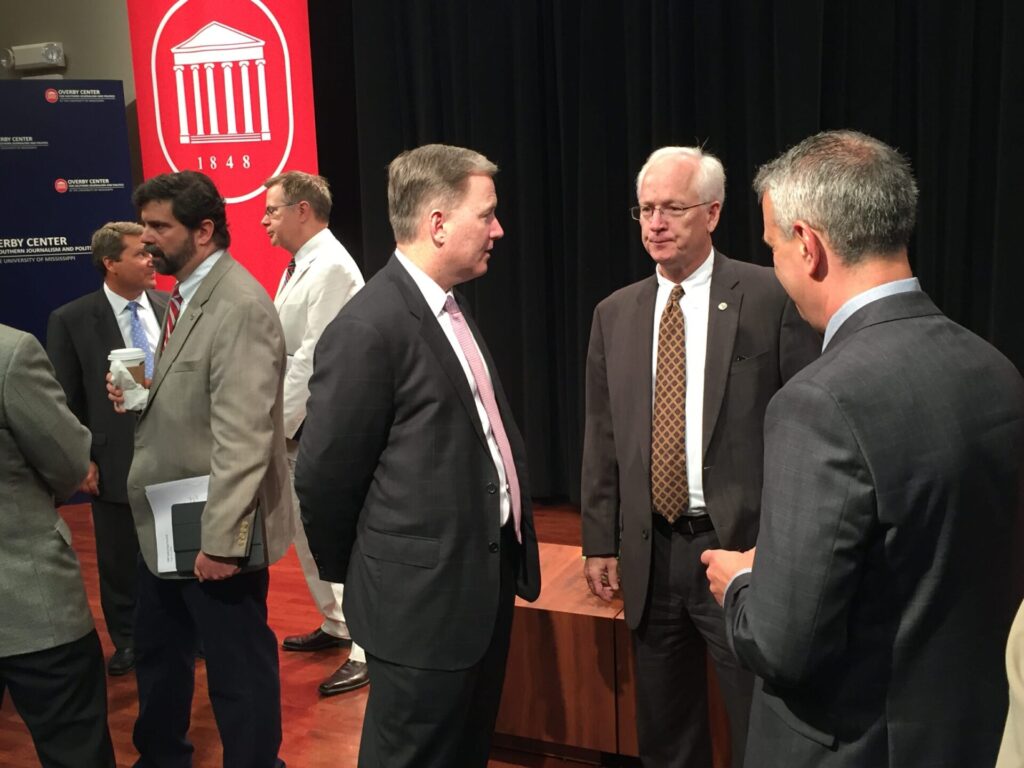
Wicker concluded stating, “Stay tuned to ways to use high-tech to save money, to save lives and protect the environment.”
Russ Jones is the Editor-In-Chief for HottyToddy.com. He can be reached at russ.jones@hottytoddy.com.
Follow HottyToddy.com on Instagram, Twitter and Snapchat @hottytoddynews. Like its Facebook page: If You Love Oxford and Ole Miss…

